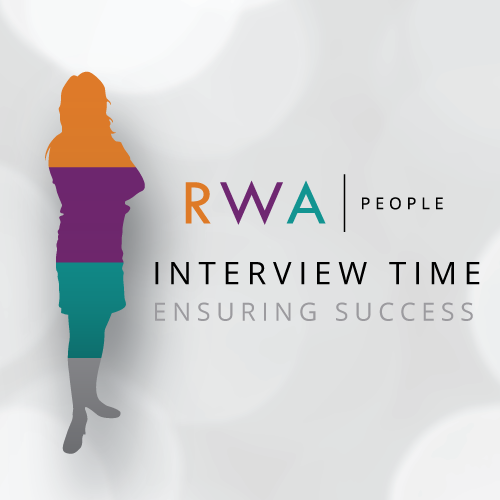 I still remember the feeling, when I first arrived… ‘Kia Ora!’
I still remember the feeling, when I first arrived… ‘Kia Ora!’
Hello and welcome to New Zealand! Home to some of the most picturesque vistas in the world, the best rugby teams on the planet, and 4.5 million residents who enjoy the quality lifestyle this island has to offer. ‘The Land of the Long White Cloud’ has opened its doors to people from all over the globe, (including me!) revelling in the diverse and exciting culture, especially in the IT market. Those with overseas experience have helped supplement our home-grown talent, cultivating our IT industry into one of New Zealand’s strongest sectors. With so many job opportunities available as well as being a stunning country to live in, it’s only natural that some of the world’s brightest talent have moved here, but actually securing your dream job once you’re here can seem like a massive task.
There is no one ‘right’ path to getting your perfect IT role, however, I have seen a few wrong ones! Here at RWA Technology People, we often see people making mistakes that can jeopardise their endeavours, especially when it relates to communication, and we don’t necessarily mean just the language barrier. This often does their skillsets an injustice, putting them out of the running for the role they seek even if they’re more than capable of performing at the required level. So, in this guide, I’ll take you through some of the key stages where we see candidates fall down, and explain how you can conquer those obstacles in the right way.
Looking for an Opportunity
As the saying goes, ‘Failing to plan is planning to fail’! I am a great advocate for preparation and have found that those who take the time to do some solid groundwork have the best chance of success:
Do some research
There are a number of obligations and requirements that you will need to adhere to now that you’ve made the move here. Know the details of your work entitlement so you can explain what visa you have and whether it’s a Work or Residence visa, the length of time you can stay, when you are most likely to be able to start, and have an idea of the areas you’re looking to work in – both in terms of the actual role and the location. If you’re unsure, talk to New Zealand Immigration; they are a treasure trove of information that can aid in your research.
If you’re currently staying with friends or family until you secure a role and are flexible as to which part of New Zealand you work in, one additional tip I have is to read the Ministry of Business, Innovation and Employment’s report, which can give you an idea of which industries are big employers and in what regions. Don’t assume that it’s only the large cities that have the greatest opportunities.
Use LinkedIn and job ads to their fullest potential
Ensure you read any job adverts precisely and carefully. What is the advertisement asking you to do? If, for example, you are asked to apply via a link and you instead leave a comment with your contact details, this will show the recruiter that you haven’t put in the effort to read what they have asked for and that you can’t follow instructions. Not a very good start!
Recruiters know the market they specialise in
Establish a strong relationship with a recruiter to get relevant employment market advice. However, while recruiters do want to help you, we can’t do it all by ourselves. Put some thought into the message you are sending us, and refrain from just noting you are after a job. Instead, tell us your story, something about yourself, what you’re looking for in a role, the skills you have, and attach your CV. The more you share with us about what you have to offer, and what you’re looking for, the more we can help find the best company whose culture fits you and who has a void that only your talent can fill.
The effort you put in will show the enthusiasm and drive you have for securing an opportunity, and that’s a huge positive for us. I would like to share one example of how one applicant really stood out recently. He initially sent me a message to my LinkedIn profile and then promptly phoned me within the hour to send me his resume. He had prepared a number of pertinent questions about the company as well as the role and offered me an insight into his skillset and personality. It was clear that he had done extensive research and planning, and knew what he wanted to do and where he wanted to go. Trust me, the hard work you invest at the beginning will pay off.
Job Interviews
Interviews in New Zealand can be different from where you have come from and it may be even more daunting if there is a language barrier. However, this isn’t a reason to panic! I have had many candidates where English wasn’t their first language, and yet they could still convey their answers clearly. This can only be done through active listening. Skilled communicators pay attention, acknowledge what is being said and take pause before responding.
Many people eagerly await the opportunity to answer a question, ready to pounce with, at times, unrelated points. Ensure you fully comprehend the question before answering and that your response relates to what is being asked. Take your time, gather your thoughts, and if you don’t understand the question, then know that it is perfectly fine to ask for clarification. Better to do this than to offer an irrelevant answer! Try to avoid waffling by being concise and direct. It’s easy to overthink when answering a question, but a good rule is that if the question is simple, don’t be afraid to give a simple answer.
Honesty is also an important element, and should underpin your whole interaction. We understand that it’s difficult to tell a potential employer about any specific requirements you may have. However, not mentioning them will mean you definitely won’t receive them, which may leave you less content in the long-term. That’s why we always say that it’s best to bring up any specific requirements you have as soon as possible, so we can find you a role that accommodates these. It is understandable that you may think this will reflect negatively on your chances of securing a position, however, being open about it will only benefit you as you will be working in an environment where your needs are respected. We help employers focus on the skills, and knowledge required for the role, as well as the values that will help you fit into the work environment. If you’re unsure what questions you can and can’t be asked, here’s a helpful guide from the Human Rights Commission.
It is important to note that as recruiters we tend to use behavioural questions to get to know our candidates here in New Zealand. These are based on the assumption that your past behaviour is the best predicator of your future behaviour. We ask specific questions about your experiences in prior roles to ensure that you have the skills required to perform the role. For further advice on succeeding in an interview, have a look at some of our tips:



On the Job
You have an exciting new role secured and the nerves are building as you approach your first day. Adapting to a new work environment in a new country with a different culture can be challenging, so try to relax and ease into your new role. Feeling culture shock is perfectly normal, and there are definitely things about New Zealand that might be different from your home country.
There are eight hours in a standard workday here, unless specified differently in your employment agreement. Feel free to go home once you have finished those hours and enjoy your new environment! Another frequent piece of feedback I get relates to how relaxed New Zealanders are. Kiwis like to have chat in the office, and it’s not uncommon to talk about non-work-related things and even to hear the odd bit of bad language. This can take a while to get used to for some people, but it is important to recognise that this is lack of formality is often how your colleagues include you as part of their team. Banter and conversation are the benefactors of strong Kiwi teams!
If you are feeling uncomfortable, there are steps you can take to reduce this anxiety. The first one is to try to get to know people better. If you’re struggling to get involved with the group conversations, try talking to individuals first and ease your way in. Having a one-on-one lunch with a colleague is a great ice-breaker with fewer pressures. Failing this, if it’s a serious or potentially serious issue, talk to your manager and communicate your concerns with them to see if they can help. Your recruiter is also a great sounding-board to offer solutions that you can incorporate daily; our relationship doesn’t have to end the day you sign the contract! We’re always happy to help candidates become more comfortable if they need it.
Lastly, socialising with more Kiwis in general, outside of the workplace, can help to make you more comfortable. From engaging in hobbies, sporting activities or even getting to know your neighbours, you will find that we are very happy to have you here. You will soon get used to the Kiwi way of doing things!
Closing Thoughts
New Zealand is a pattern of colourful landscapes, an enviable lifestyle and a thriving IT industry. It’s no wonder we at RWA Technology People have seen so many people come here with the skills our clients need to enhance their businesses. But that doesn’t mean it’s easy. To be successful requires preparation and commitment, and for you to understand what is going on at every step of the way.
Ready to take advantage of the ever-expanding IT market and want some expert advice? Call our team today and we can help develop your career with your next dream job.

